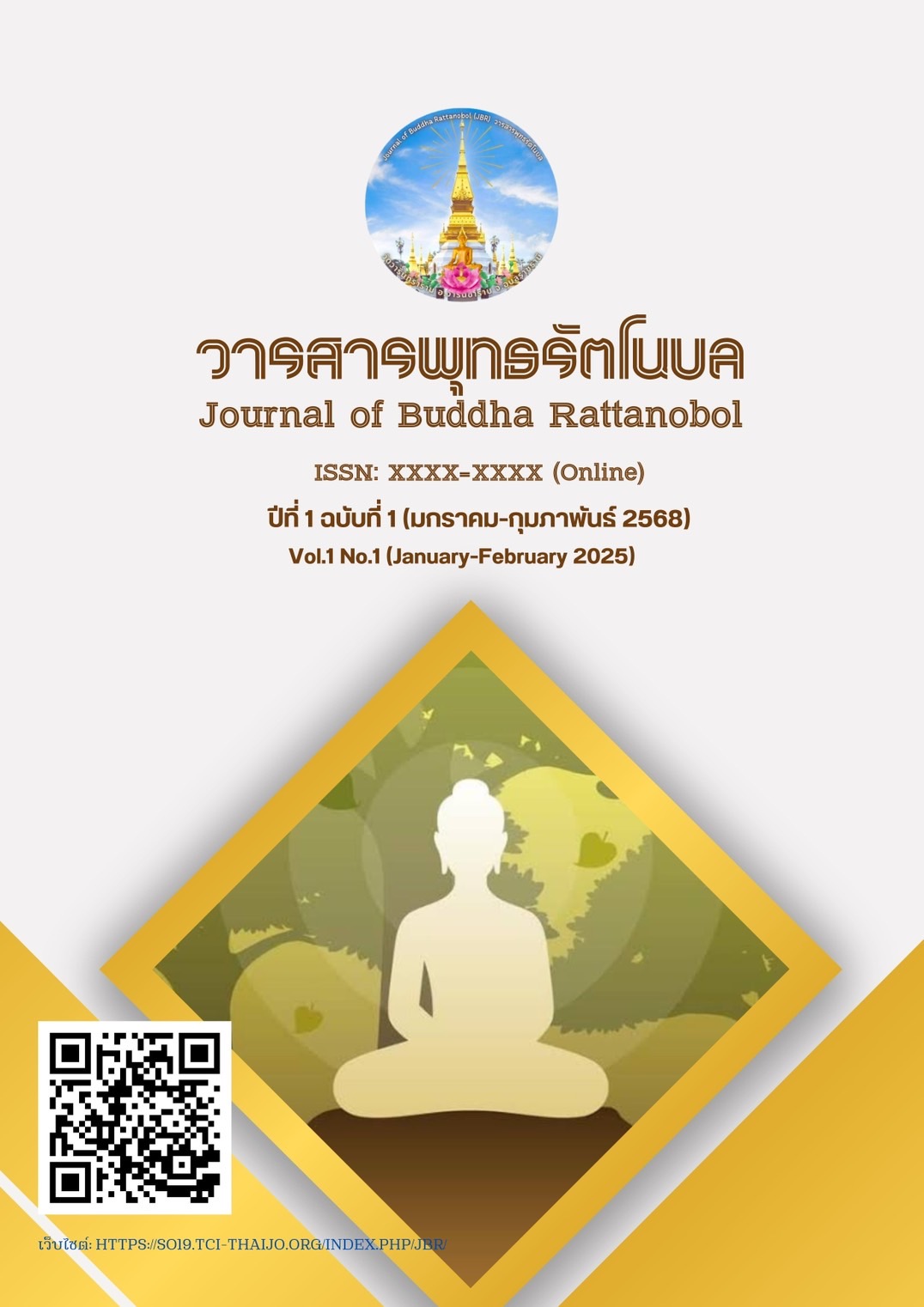Legislative and Judicial Principles in the Tipitaka
Main Article Content
Abstract
This article aims to analyze and synthesize the legislative and judicial principles found in the Tipitaka, which serves as a significant religious and legal reference in Buddhism. The Tipitaka is not only a religious guide outlining the principles and daily practices for Buddhists, but it also contains principles related to the establishment of social order, adjudication, and law enforcement within the monastic community. The article begins by exploring the structure and content of the Tipitaka, focusing on the categories and texts relevant to legislative principles, such as the Vinaya Pitaka, which addresses regulations concerning monastic discipline, including the investigation and adjudication processes found within its texts. Additionally, the article examines the relationship between these principles and the establishment of justice in society by comparing them to the rule of law in contemporary society. This comparison aims to illustrate the historical background of legislative and judicial processes within a religious context. The study finds that these principles are complex and nuanced in their application to maintain the harmony of the monastic community and continue to influence ethical standards that are still reflected in modern society. The article concludes that the study of legislative and judicial principles in the Tipitaka not only helps us understand the processes and methods used to address issues within the monastic society in the past but also highlights the value of these principles, which remain beneficial for promoting justice and order in modern society
Article Details

This work is licensed under a Creative Commons Attribution-NonCommercial-NoDerivatives 4.0 International License.
References
คูณ โทขันธ์. (2545). พุทธสาสนากับสังคมและวัฒนธรรมไทย. กรุงเทพมหานคร: โอ.เอส.พริ้นติ้เอาส์.
จำนง อติวัฒนสิทธิ์. (2548). สังคมวิทยาตามแนวพุทธศาสตร์ (พิมพ์ครั้งที่ 2). กรุงเทพมหานคร: สำนักพิมพ์มหาวิทยาลัยเกษตรศาสตร์.
ธนาคม บรรเทากุล. (2562). การบริหารตามหลักนิติบัญญัติและตุลาการในพระไตรปิฎก. วารสารสันติศึกษาปริทรรศน์ มจร, 8(2), 1-19
บุญมี แท่นแก้ว. (2540). พระพุทธศาสตร์กับปรัชญา. กรุงเทพมหานคร: หจก. เม็ดทรายพริ้นติ้ง.
พระธรรมปิฎก (ป.อ. ปยุตฺโต). (2543). รู้จักพระไตรปิฎกเพื่อเป็นชาวพุทธที่แท้ (พิมพ์ครั้งที่ 2). กรุงเทพมหานคร: โรงพิมพ์เอดิสันเพรสโปรดักส์.
พระธรรมปิฎก (ปอ. ปยุตฺโต). (2543). พุทธธรรม (พิมพ์ครั้งที่ 9). กรุงเทพมหานคร: โรงพิมพ์มหาจุฬาลงกรณราชวิทยาลัย.
พระธรรมปิฎก. (2541). ธรรมนูญชีวิต. กรุงเทพมหานคร: มูลนิธิพุทธธรรม.
พระมหาสมบัติ ธมฺมสาโร. (2562). การประยุกต์ใช้หลักธรรมทางพุทธศาสนาในสังคมปัจจุบัน. วารสารพุทธศาสนศึกษา, 3(1), 21-29
มหามกุฎราชวิทยาลัย. (2521). ประวัติการปกครองคณะสงฆ์ไทย. กรุงเทพมหานคร: โรงพิมพ์มหามกุฎราชวิทยาลัย.
มหาวิทยาลัยมหาจุฬาลงกรณราชวิทยาลัย. (2539). บทนำ. พระวินัยปิฎกเล่ม 1. กรุงเทพมหานคร: โรงพิมพ์มหาจุฬาลงกรณราชวิทยาลัย.
มหาวิทยาลัยสุโขทัยธรรมาธิราช. (2528). ระบบกฎหมายไทยและต่างประเทศ. กรุงเทพมหานคร: บริษัทวิคตอรีเพาเวอร์พอยต์ จำกัด.
สมเด็จพระมหาสมณเจ้า กรมพระยาวชิรญาณวโรรส. (2541). วินัยมุข เล่ม 1 (พิมพ์ครั้งที่ 39). กรุงเทพมหานคร: โรงพิมพ์มหามกุฎราชวิทยาลัย.
เสถียรพงษ์ วรรณปก. (2543). คำบรรยายพระไตรปิฎก. กรุงเทพมหานคร: ธรรมสภา.
เสถียรพงษ์ วรรณปก. (2543). คำบรรยายพระไตรปิกฎ. กรุงเทพมหานคร: ธรรมสภา.
Kulsuwan, S. (2021). หลักธรรมาภิบาลในพระไตรปิฎก. วารสารเสียงธรรมจากมหายาน, 7(1), 1-10
Piyaphanyamongkol, A. (2021). แนวทางการส่งเสริมการมีส่วนร่วมทางการเมืองในการเลือกตั้งของนักศึกษาระดับปริญญาตรีมหาวิทยาลัยราชภัฏสวนสุนันทา. Journal of Legal Entity Management, 7(6), 347-355.


